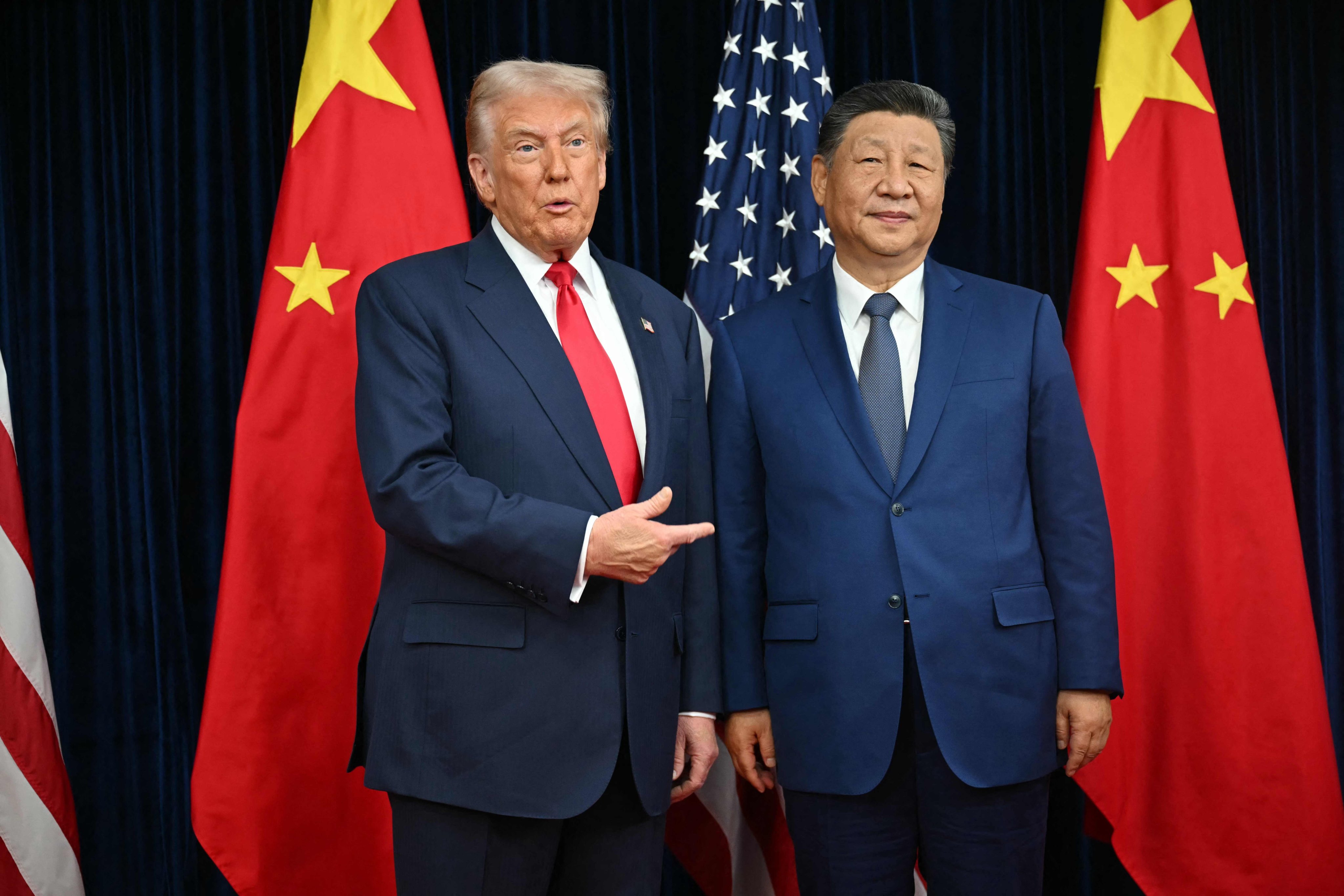Copyright scmp

In a stark departure from past China-US summits, Taiwan did not rate a mention on Thursday, prompting speculation that Xi Jinping and Donald Trump had arrived at a tacit and pragmatic understanding to deprioritise the contentious issue. Taiwan – regarded by Beijing as a core interest and “the first red line that cannot be crossed” in bilateral relations – has in recent years occupied a few lines in official readouts following face-to-face meetings between the countries’ leaders, but not in Busan, South Korea, on the sidelines of the Asia-Pacific Economic Cooperation summit. After he met Xi, Trump told reporters “Taiwan never came up”, despite the in-person discussion being their first since the US leader returned to the White House in January. The Chinese readout, released by state news agency Xinhua, also made no mention of Taiwan. That is unusual, given that Beijing has previously used such occasions to restate its position at length and warn Washington against supporting “Taiwan independence” or arming the island. Beijing sees Taiwan as part of China to be reunited by force if necessary. Most countries, including the United States, do not recognise Taiwan as an independent state, but Washington is opposed to any attempt to take the self-ruled island by force and is committed to supplying it with weapons. Zhu Feng, executive dean of Nanjing University’s school of international studies, said the Taiwan issue had “declined” in importance in recent Sino-US diplomacy. “Taiwan is not a priority for US security or foreign policy,” Zhu said. “It is clear that Trump has significantly lowered the emphasis on the Taiwan issue.” That view was echoed by Wu Xinbo, dean of Fudan University’s Institute of International Studies, who described Trump as “primarily interested in economic and trade matters rather than Taiwan”. Wu cited “a new round” of bilateral trade tensions earlier in the month as a major reason Taiwan was not broached this time. “As a result, both sides devoted most of their attention to managing trade disputes,” he said. Since returning to office, Trump has vacillated on Taiwan while seeking to strike a trade deal with Beijing. Thursday’s 100-minute meeting appeared to focus heavily on economic issues, such as fentanyl and trade. Sensitive topics such as the South China Sea and human rights were also absent from the Chinese readout. The shift stands out because during the three in-person meetings between Xi and former US president Joe Biden held from 2022 to 2024, Taiwan was mentioned each time. The issue also came up routinely during their phone calls. And in his phone call with Trump in January, Xi urged the American leader to “handle the Taiwan issue with utmost caution”. However, the two omitted it from their most recent call in September, instead focusing on trade. In public, Trump has appeared reluctant to throw his weight behind Taipei the same way his predecessors did. In September, he declined to approve more than US$400 million in military aid meant for Taiwan. He also reportedly turned down a request this summer by Taiwanese leader William Lai Ching-te to transit the US. Meanwhile, scepticism in Taiwan has risen about America’s defence commitment under Trump and has been exacerbated by his administration’s push for the island to invest more of its semiconductor production in the US. In light of these circumstances, Zhu said, it was “unlikely” Beijing would raise the Taiwan issue at the next meeting between the Chinese and US leaders. He added that Beijing was “not actively seeking to use force against Taiwan at this stage, and I believe the US understands this”. The Taiwan issue’s demotion as an agenda item in the Washington-Beijing dialogue stems from Trump’s transactional approach to diplomacy, according to Cui Hongjian, director of the European studies department at Beijing Foreign Studies University. Cui said the way Taiwan was de-emphasised “even increased the possibility of reaching a certain tacit understanding” of the issue in the future. Yet he cautioned that Trump could bring up Taiwan if he saw a need to do so. Before the summit, US Secretary of State Marco Rubio said the Trump administration would not abandon America’s long-standing support for Taiwan in its talks with Beijing. Analysts said Trump’s muted approach to the issue could affect US allies, signalling that Washington may no longer back them in “playing the Taiwan card” when dealing with Beijing. Cui said that if politicians or parties failed to adjust to how the US was de-prioritising Taiwan, they might find their attempts to use “the Taiwan card” less effective. Beijing’s confidence in countering such moves would thus “likely grow”, he said. “Beijing will take a firmer stance when dealing with European or other countries that use the Taiwan issue to pressure China,” Cui added. Last week, German Foreign Minister Johann Wadephul’s planned visit to China was postponed following an interview in which he stated that Berlin’s one-China policy “remains unchanged” but that his government would decide on its “design”. Beijing subsequently urged Germany to take a clear stance against “Taiwan independence”. John Lim Chuan-tiong, a research fellow at the University of Tokyo’s Institute for Advanced Studies on Asia, said Beijing’s silence on Taiwan might have been a deliberate negotiating tactic to prevent Trump from playing the “Taiwan card” to gain concessions. Lim said Beijing may have narrowed the scope of Thursday’s talks so that both sides could “focus on the most pressing issues and limit the US’ choices of response”. At the same time, Washington, which considers trade issues a top priority in China-US relations, “doesn’t mind excluding the Taiwan issue too”, he added. However, the absence of Taiwan from the talks did not necessarily signal a shift in Beijing’s policy. In its latest five-year policy plan released this week, Beijing reiterated it would “resolutely fight against separatist forces seeking ‘Taiwan independence’ and oppose external interference”. Xie Maosong, a senior researcher at Tsinghua University’s National Institute of Strategic Studies, said a clear geopolitical trend was “emerging” in that Beijing had showcased its improved military strength and signalled a “staunch political will” to advance the cause of national reunification, while the Trump administration had offered little pushback.



